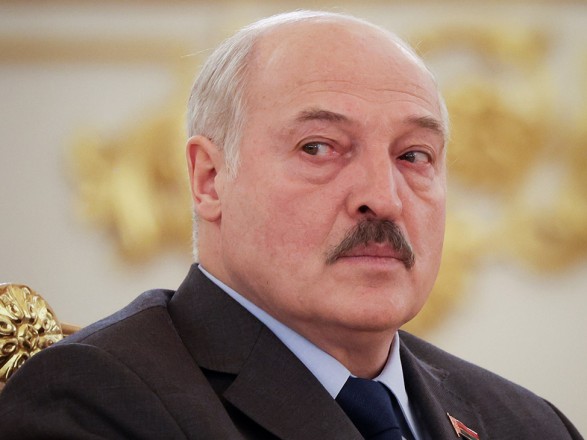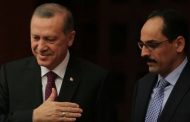KYIV. UkraineGate , 10 , June , 2022 | Political News.
Almost every day, Russian planes launch missile strikes on Ukraine from Belarus. Meanwhile, units of the Armed Forces of the Republic of Belarus continue to strengthen the section of the Belarusian-Ukrainian border. Against the background of the constant threat from Belarus .
Relations between Lukashenko and Putin
In April this year, the premiere of the documentary “Lukashenka threw Putin”, which was shot by the opposition Belarusian media Nexta.
Journalists spoke about the real relationship between the self-proclaimed President of Belarus Alexander Lukashenko and Russian President Vladimir Putin.
“There was a gas and an oil war between them, when Lukashenko actually blackmailed Russia by blocking the gas pipeline and saying he would cut off gas supplies from Belarus,” one expert told Nexta.
Moreover, Lukashenko once even called Putin a terrorist. In general, the nature of communication between the two politicians was constantly changing: they were either friends or bitter enemies. However, Belarus’s dependence on Russia has been growing every year.
“Today we have an occupied country, we have an unreformed economy, and we are 99, if not 100%, dependent on Russia – the de facto occupier of our country, people and troops who use our peaceful territory for war against Ukraine,” – Ales Zarembyuk, president of the Belarusian House in Warsaw Foundation, told Nexta journalists.
Nevertheless, in 2019 Lukashenko met with President of Ukraine Volodymyr Zelensky and stated that there would never be any problems in relations between the two countries.
“You have never had any problems with the territory of Belarus and with Belarus, you will never have them. We will always be the best and most reliable of your supporters and partners, ” Lukashenko said in 2019.
But what happened and why in 3 years Belarus is actually helping Russia in the war with Ukraine?
How the protests in Belarus in 2020-2021 are related to the war in Ukraine
Two years ago, protests began in Belarus, which intensified after the presidential election on August 9, 2020. The goal of the protesters was the resignation of Lukashenko and the holding of repeat, fair elections. However, support for Russian President Vladimir Putin at the height of the protests helped the dictator hold back.
Could Lukashenko stay in his seat without the help of the aggressor? According to political analyst Oleksandr Kochetkov, no.
“Lukashenko began to” fit in “with Putin after the end of the failed Belarusian revolution. Since then, Russia has supported Belarus, including the military, and the army that sided with Lukashenko – it is largely under the control of the Kremlin, so Lukashenko has ceased to be subjective.
He remained in office, but his tenure as head of Belarus depends entirely on Putin’s commitment. Lukashenko understands very well that if he is not with him, Putin will get rid of him, bypassing all democratic procedures. He will simply disappear. The massacre can be any,
So, in fact, for a number of Belarusian oppositionists (or rather – “great” salvation of Lukashenko from them) and helped him stay in the dictator’s chair, and Putin – to gain power over him. But who?
In June last year, Roman Protasevich, founder of the Belarusian opposition Telegram channel Nexta, said that Protestants in Belarus (2020-2021 against Lukashenko) were funded by prominent Russian oligarch Dmitry Mazepin, who is close to Putin’s circle of Russian businessmen. Mazepa himself denied his involvement in Nexta.
At the same time, during protests on behalf of the Russian-Belarusian Business Council, he condemned the violence of Lukashenko’s security forces and even called on the opposition to set up a national rescue committee, which should in fact become the Belarusian-led opposition.
Mazepin, Belarus, Ukraine
At the end of 2020, the public company Uralkali, after concluding certain agreements, came under the control of the Uralkhim Corporation, the majority owner of which until recently was Dmytro Mazepin.
In addition, at one time the businessman planned to actively work in the direction of “merger” of “Belaruskali” with “Uralkali”, connecting his ties with the Sberbank of Russia (represented by Herman Gref – Chairman of Sberbank of Russia), hoping for favorable relations with Lukashenko, who was supposed to help merge the two companies (with headquarters and financing center in Moscow).
However, everything did not go according to plan. Lukashenko did not accept these conditions and the negotiation process came to a standstill. After the presidential election in Belarus, which sparked popular outrage and acts of force, Mazepin decided to play on it and called on the opposition to set up the same National Salvation Committee.
According to foreign experts, Mazepin, who was outraged by Lukashenko’s refusal to help merge the Belarusian and Russian companies, decided to help Putin “occupy Belarus” and planned to set up an alleged “opposition” committee in parallel with Protasevich’s funding of Nexta.
Mazepin’s main goal, despite his claims of non-involvement in funding the Belarusian opposition, was to help Putin catch “Belarus” on the hook to enlist the country’s support in the war with Ukraine, which Putin has long been preparing to attack.
For Mazepin, the “occupation” of Belarus by Russia was probably in his favor, because because of the war in Ukraine, as it turned out, he planned to get a “port plant”, promising Russian President Putin a quick surrender of Odessa.
How the Odessa port plant is connected with Mazepin is a well-known thing. It is through him that Russian ammonia is exported, which is produced by Mazepa’s TogliattiAzot enterprise. This is currently the only opportunity to export TogliattiNitrogen products from Russia to America and other countries. On average, Russia distills 2.5 million tons of ammonia through the Togliatti-Odesa ammonia pipeline.
Ukraine receives an average of UAH 1.6 billion annually from this transit. But this is only a small percentage of what Russia receives from the transit of ammonia through Ukraine.
Russia receives up to $ 12 billion a year from ammonia supplies through Ukraine to the West.
Despite this, the then majority owner of the Russian company Uralkhim Dmitry Mazepin (at that time he was still the manager of Togliattiazot, after the war – owns 80.51% of the company) said that the transit of ammonia through Ukraine is constantly accompanied by many risks due to Russian conflicts with Ukraine and he wants to reduce dependence on ammonia supplies through our country. However, there are currently no other effective ways to transport ammonia from Togliatti to other countries.
That is why, according to Ustenko, a possible revolt of Russian businessmen against Putin is impossible .
Source: Ukrgate







